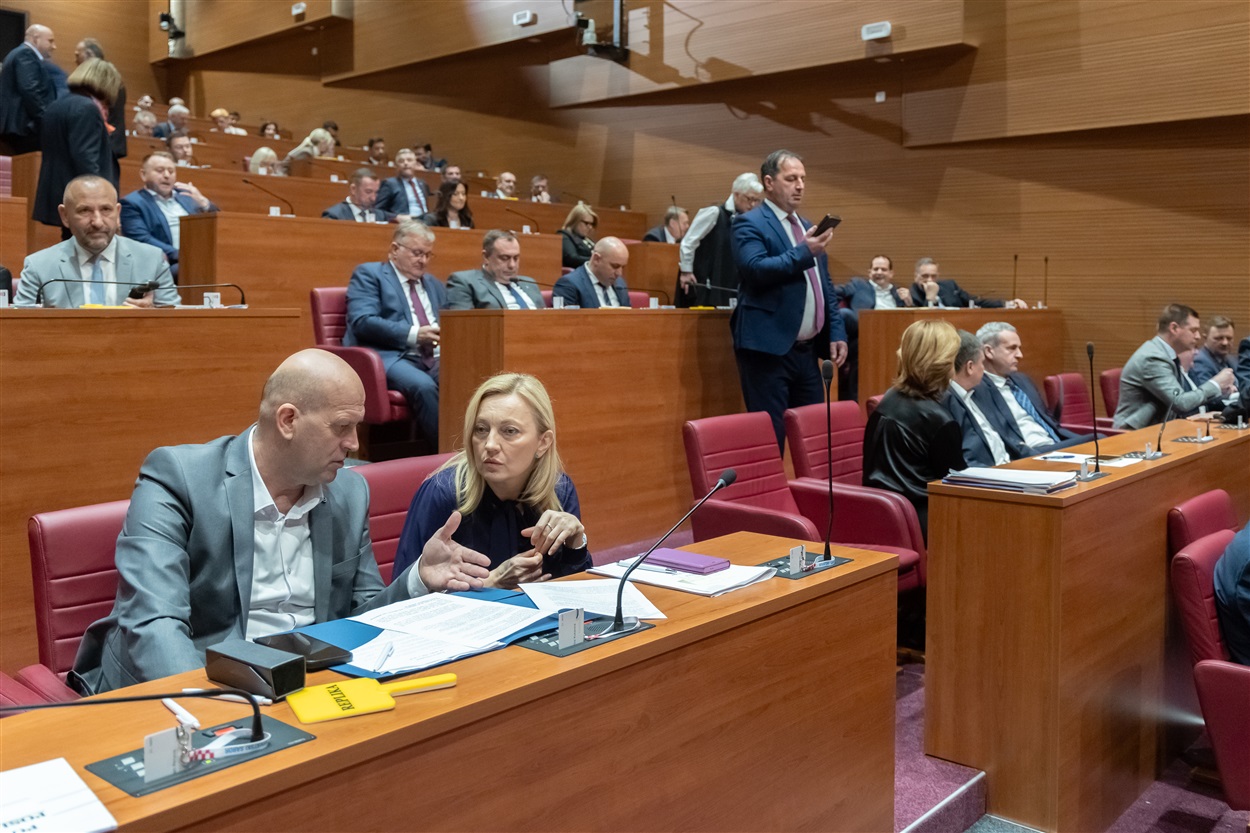
Zagreb - Croatian lawmakers on Thursday welcomed a bill on mediation offering an alternative means of dispute resolution, while noting that the biggest challenge would be to familiarise citizens with the benefits of the process.
The bill offers a more humane solution and, if the procedure is free of charge, it should attract public interest - the question is why people remain unaware of it, said HDZ MP Josip Borić. He asked whether lawyers were equally willing to inform their clients that another system for settling disputes exists.
Given that we handle more than 1.2 million cases a year, and that each dispute involves at least two people, two-thirds of our citizens are engaged in judicial proceedings annually, he observed.
Justice Minister Damir Habijan acknowledged that making citizens aware of the advantages of mediation would be challenging, emphasising that it was the role of lawyers to help communicate that message.
Assessing that both judges and lawyers lack sufficient motivation to promote mediation, SDP MP Boris Piližota asked what specific steps the Justice Ministry would take to encourage them to use and recommend it.
"First and foremost, the parties themselves need to be motivated. Judges would probably applaud if more people opted for mediation, as it would mean fewer cases before the courts," Habijan said.
He acknowledged that mediation, or the peaceful settlement of disputes, had not been adequately promoted, noting that only 124 and 60 settlements respectively were reached last year. That figure is worrying as it shows that we all need to do more, he added.
Responding to SDP MP Tonči Restović’s question about how many cases might be resolved through mediation, Habijan said that roughly 6,000 cases would be subject to mandatory information sessions.
He also explained the differences between mediation and the previous system of out-of-court dispute resolution, which failed to take root.
Mediation remains voluntary, but the law now requires parties to attend a mandatory mediation attempt before initiating litigation in compensation cases of small value and inheritance disputes. These are cases where the value of the dispute is up to €1,320, or €6,630 before commercial courts.
These are the two situations in which parties will be obliged to attend an information session, and if they fail to do so, the only sanction will be cost-related, the minister said.
He stressed that the aim of promoting alternative dispute resolution is to speed up court proceedings, or to prevent some cases from reaching the courts at all, which currently handle around 1.2 million new cases each year, "a truly large number for a country like Croatia."
Given that Croatia has around 1,650 judges, Habijan said the perception of an excessively high number of judges per capita no longer holds water.
He confirmed that there are about 1,000 registered mediators in Croatia, explaining that not all of them have to be judges, but all must be properly trained.
Information sessions and mediation will be available free of charge before official mediators at the National Mediation Centre, headquartered in Zagreb with branches in Rijeka, Split and Osijek. In cooperation with county, city and municipal associations, the ministry aims to make mediation accessible beyond major cities, ensuring it is available to every citizen.